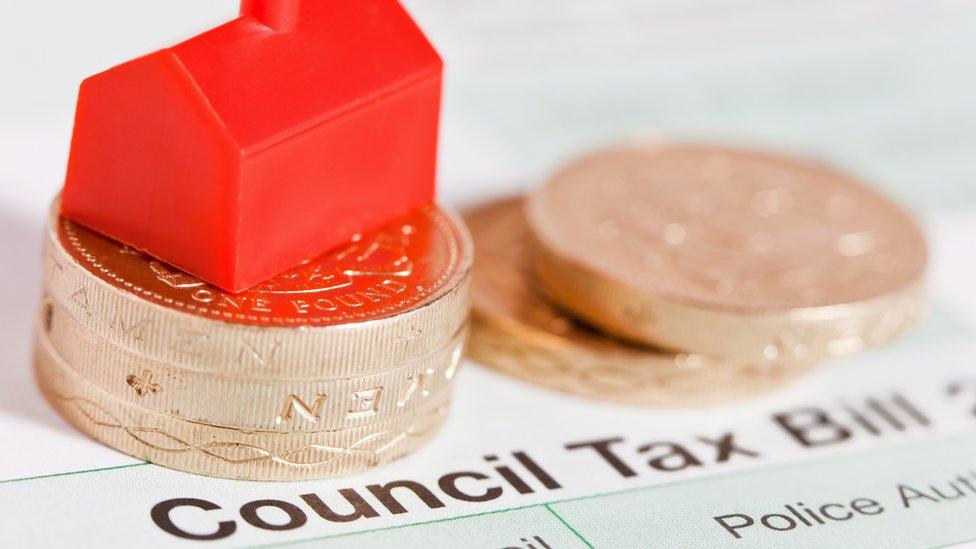Council tax: Kent, Surrey and Sussex face increases
- Published

Council taxpayers in the South East are facing increases across the board
Council taxpayers across the South East are facing increases in their bills again this year.
Surrey County Council approved a 4.99% rise, East Sussex agreed a 1.99% hike, and West Sussex a 2.99% increase.
Meanwhile, Kent County Council voted through a rise of 2.99% which opposition councillors said was like treating people "like cash machines".
Any rises would add pressure on people also facing hikes in National Insurance and energy bills from April.
Here we take a look at the county and unitary authorities whose council tax rates make up the lion's share of people's tax bills.

Surrey
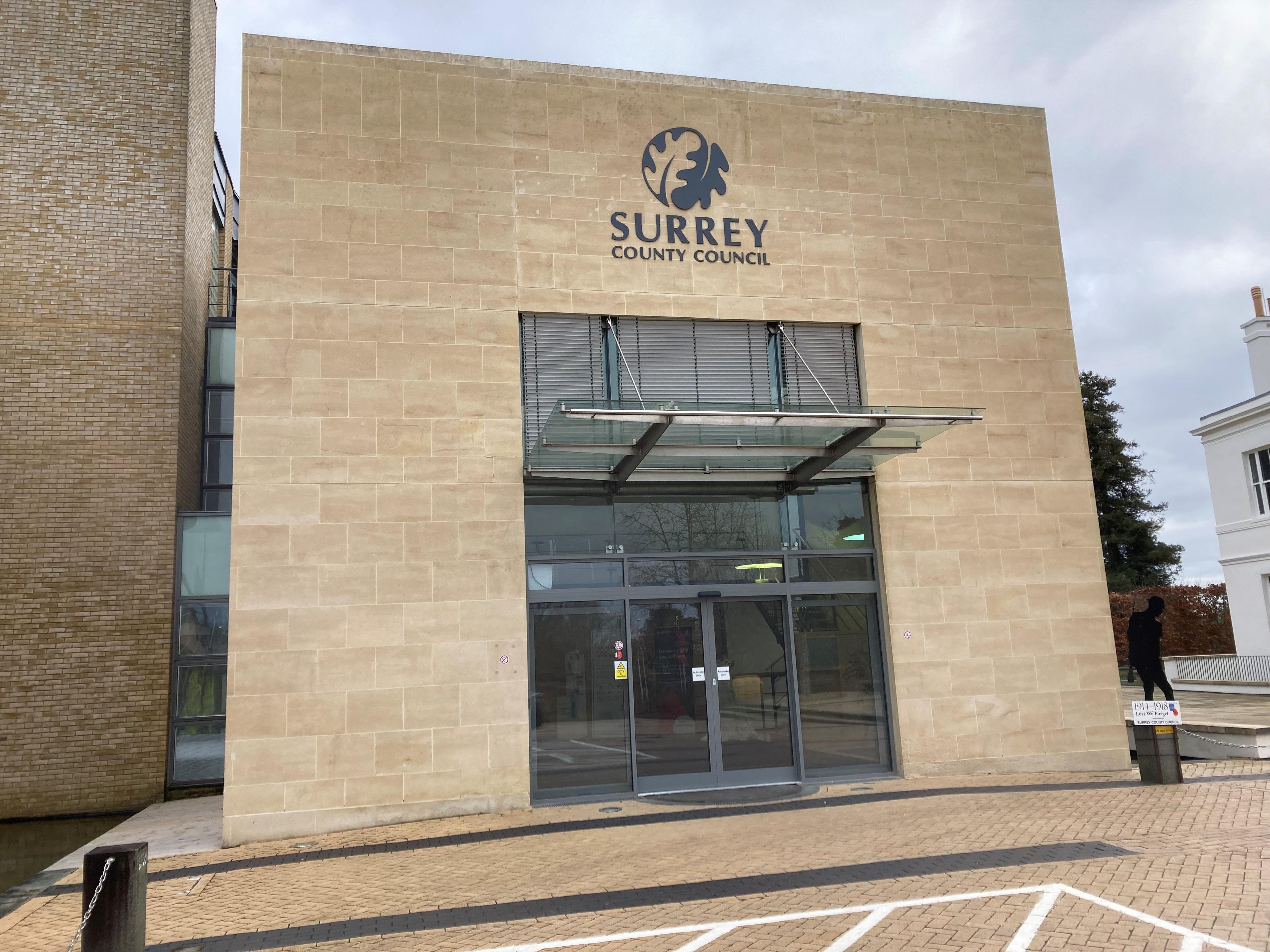
Surrey County Council could increase tax bills by 4.99%
Surrey county councillors have voted through a 4.99% council tax rise, which will see a Band D household pay an extra £77.31 for the year.
However, calls to use some of its £150m reserves to spend more on public health and spare residents the extra cost were rejected, according to the Local Democracy Reporting Service.
Many opposition councillors backed a proposal by Green councillor Jonathan Essex to use about £26m (17%) of the council's reserves.
This included an £8m spend to deliver a child poverty strategy, reverse the reduced number of children's centres and support preventative health.
However, it was voted down by 43 members and supported by just 31.
Council leader Tim Oliver said the amendment was "bordering on the irresponsible" and the council's reserves were "not excessive".
The council tax rise is made up of:
0.99% increase to fund the increased cost of delivering services
3% increase to fund additional spend in adult and children's social care
1% increase to fund additional investment in mental health
Councillor Oliver said: "We recognise that household budgets are feeling the squeeze just like ours - that any further increase for many people is unpalatable - but we're deciding to tackle the root causes of hardship and inequality.
"For those that need financial help now, who are facing crisis point, we will actively support them."

West Sussex
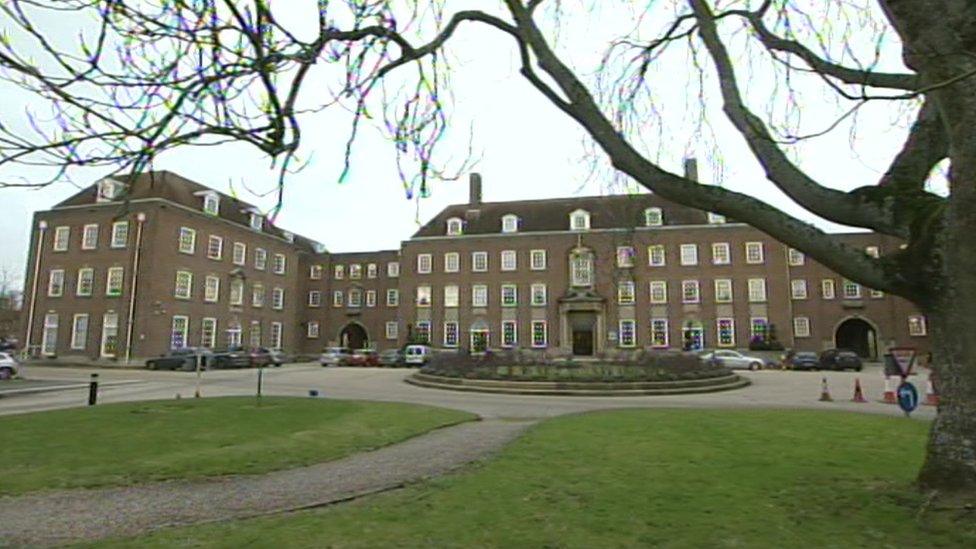
West Sussex County Council is proposing a rise of 2.99% in its council tax bills
West Sussex County Council's portion of the 2022/23 council tax will rise by 2.99% - an increase of more than £45 on a Band D bill.
Made up of a 1.99% core increase and a one per cent precept for adult social care, it will see Band D bills rise from £1,510.56 to £1,555.74.
The council said this year's budget includes £10m towards it delivering a carbon net zero strategy.
Jeremy Hunt, cabinet member for finance, said: "Now more than ever we know that people need the essential services which local government provide.
"We have ensured there are no new additional savings for the year ahead and have instead looked at ways to invest in strengthening services, and make sure we remain in a strong financial position."

East Sussex
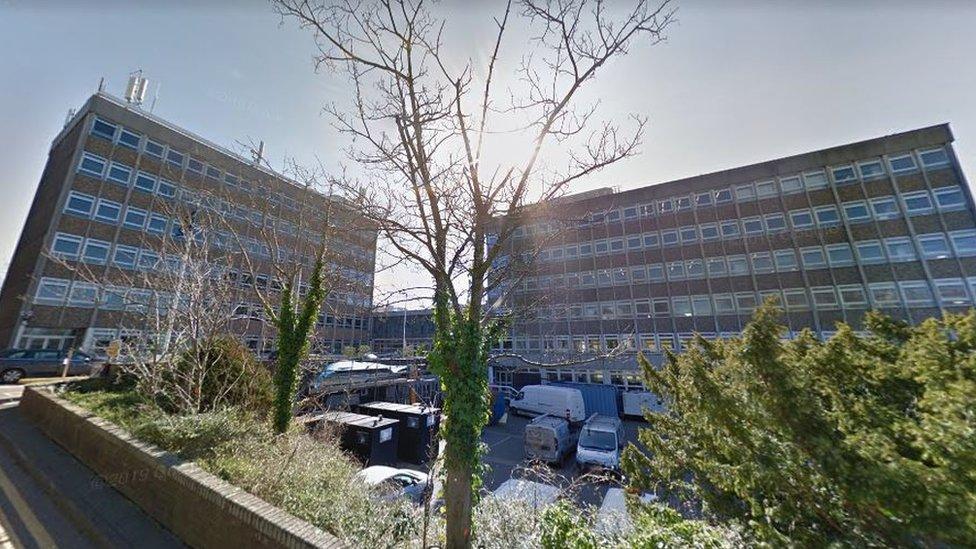
East Sussex County Council is looking to increase council tax bills
East Sussex councillors voted through a 1.99% increase in its share of the council tax on 8 February.
It will also increase its adult social care precept by 2.5%, meaning a total increase of £69 per year for a Band D household.
The authority is promising to spend £31m in the next decade maintaining and repairing roads and pavements, and an extra £6m tackling climate change.
Councillor Nick Bennett, Conservative lead member for resources and climate change, said: "We still face future financial uncertainty and continue to fight for fairer and more sustainable funding for East Sussex, but it's vital that we continue to invest in priority areas when we can."
Across both counties, Sussex's Police and Crime Commissioner Katy Bourne has already had a £10 per year increase for Band D properties approved, equivalent to a 4.7% rise, to take the police precept across Sussex to £224.91.

Kent
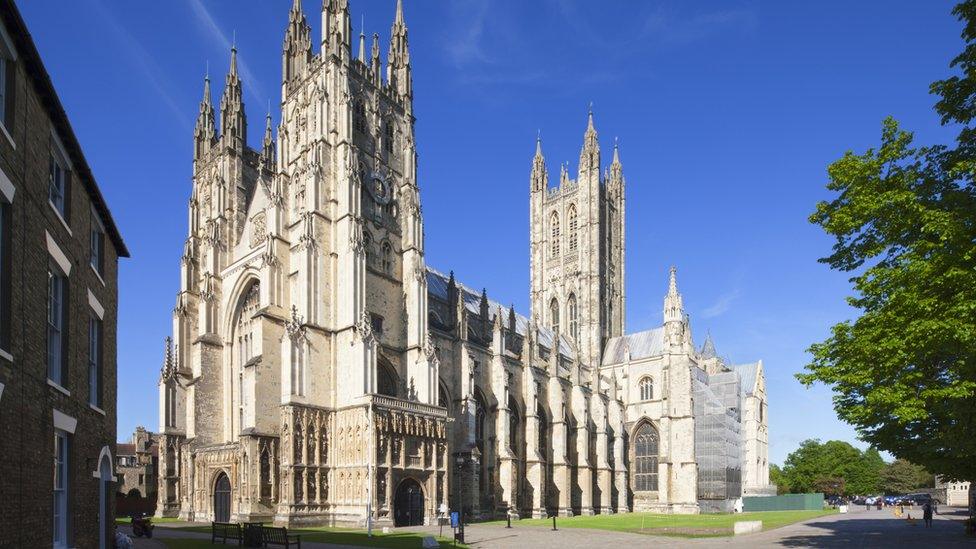
Households across Kent, including in the cathedral city of Canterbury, face a council tax rise
County councillors in Kent have voted through a council tax rise of 2.99%.
It means that Band D households will pay an extra £42.48 compared to the last financial year, marking an estimated rise from £1,418 to £1,461, the Local Democracy Reporting Service said.
Kent County Council's deputy leader, Conservative councillor Peter Oakford, said it was an "extremely tough" decision, but necessary to maintain frontline services, particularly adult social care.
Labour opposition leader Dr Lauren Sullivan said the council "has hit rock bottom", adding: "We have a budget that is desperate and does not know which way to turn."
Councillors earlier agreed to sell 18,000sq ft of office and laboratory space in Kings Hill, West Malling, to help balance the budget.
Meanwhile, Kent Police and Crime Commissioner Matthew Scott has increased his share of the tax by 4.58%, raising the policing bill for a Band D property by £10, from £218 to £228.
Mr Scott said the additional funding is required to secure a further increase in police officer numbers, to 4,165, and to invest more in police stations, a new digital system and to cover growing cost pressures caused by Covid.
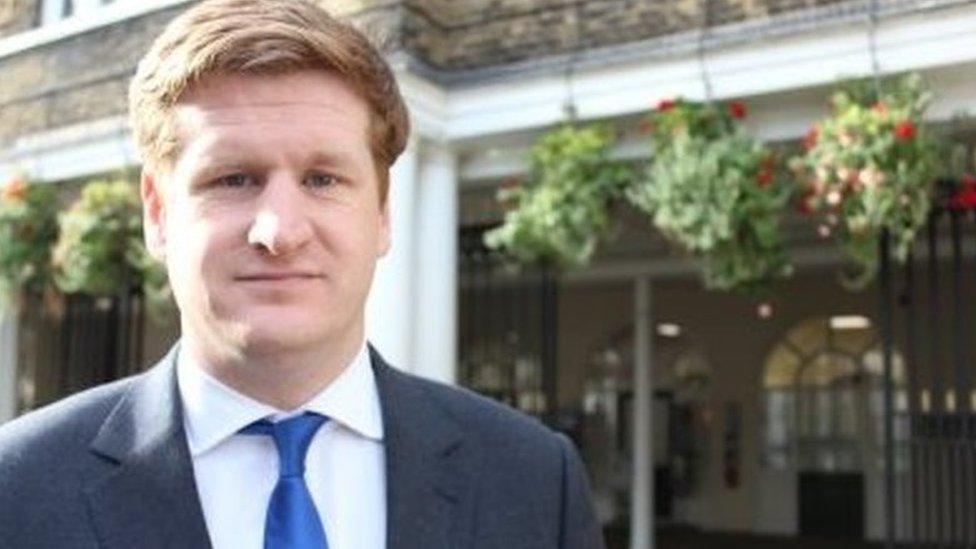
Kent's PCC Matthew Scott is planning to increase his share of the council tax to pay for more officers
Medway
Kent's unitary authority is raising its council tax by 2.994%, equivalent to £46.27 for a Band D property.
An extra £6.1m is being invested in children's services. In 2020 the authority was told to improve after two "inadequate" ratings by Ofsted.
Brighton and Hove
East Sussex's unitary authority, Brighton and Hove City Council, is increasing its council tax by 1.99%, along with another 2% to cover what it says is increased costs for adult social care.
The authority said it had to make savings of £10m to cover a £16m budget shortfall.
Council leader Phélim Mac Cafferty said: "We have sought to protect frontline services.
"As such, we are faced with a limited number of ways to meet the challenge: increase council tax, fees and charges, or make cuts to frontline services such as libraries, nurseries and leisure centres."

Follow BBC South East on Facebook, external, on Twitter, external, and on Instagram, external. Send your story ideas to southeasttoday@bbc.co.uk.
- Published3 February 2022

- Published26 February 2021
